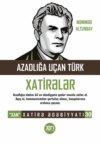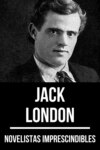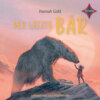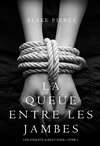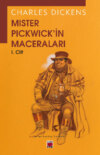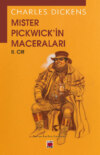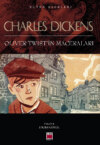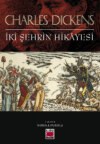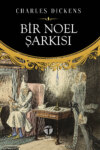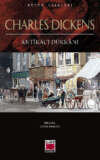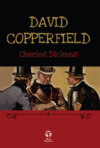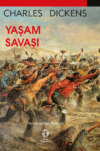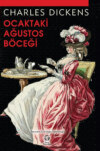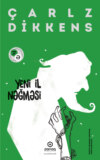Kitabı oku: «Oliver Twist, Illustrated; or, The Parish Boy's Progress», sayfa 11
CHAPTER XVIII – HOW OLIVER PASSED HIS TIME IN THE IMPROVING SOCIETY OF HIS REPUTABLE FRIENDS
About noon next day, when the Dodger and Master Bates had gone out to pursue their customary avocations, Mr. Fagin took the opportunity of reading Oliver a long lecture on the crying sin of ingratitude; of which he clearly demonstrated he had been guilty, to no ordinary extent, in wilfully absenting himself from the society of his anxious friends; and, still more, in endeavouring to escape from them after so much trouble and expense had been incurred in his recovery. Mr. Fagin laid great stress on the fact of his having taken Oliver in, and cherished him, when, without his timely aid, he might have perished with hunger; and he related the dismal and affecting history of a young lad whom, in his philanthropy, he had succoured under parallel circumstances, but who, proving unworthy of his confidence and evincing a desire to communicate with the police, had unfortunately come to be hanged at the Old Bailey one morning. Mr. Fagin did not seek to conceal his share in the catastrophe, but lamented with tears in his eyes that the wrong-headed and treacherous behaviour of the young person in question, had rendered it necessary that he should become the victim of certain evidence for the crown: which, if it were not precisely true, was indispensably necessary for the safety of him (Mr. Fagin) and a few select friends. Mr. Fagin concluded by drawing a rather disagreeable picture of the discomforts of hanging; and, with great friendliness and politeness of manner, expressed his anxious hopes that he might never be obliged to submit Oliver Twist to that unpleasant operation.
Little Oliver’s blood ran cold, as he listened to the Jew’s words, and imperfectly comprehended the dark threats conveyed in them. That it was possible even for justice itself to confound the innocent with the guilty when they were in accidental companionship, he knew already; and that deeply-laid plans for the destruction of inconveniently knowing or over-communicative persons, had been really devised and carried out by the Jew on more occasions than one, he thought by no means unlikely, when he recollected the general nature of the altercations between that gentleman and Mr. Sikes: which seemed to bear reference to some foregone conspiracy of the kind. As he glanced timidly up, and met the Jew’s searching look, he felt that his pale face and trembling limbs were neither unnoticed nor unrelished by that wary old gentleman.
The Jew, smiling hideously, patted Oliver on the head, and said, that if he kept himself quiet, and applied himself to business, he saw they would be very good friends yet. Then, taking his hat, and covering himself with an old patched great-coat, he went out, and locked the room-door behind him.
And so Oliver remained all that day, and for the greater part of many subsequent days, seeing nobody, between early morning and midnight, and left during the long hours to commune with his own thoughts. Which, never failing to revert to his kind friends, and the opinion they must long ago have formed of him, were sad indeed.
After the lapse of a week or so, the Jew left the room-door unlocked; and he was at liberty to wander about the house.
It was a very dirty place. The rooms upstairs had great high wooden chimney-pieces and large doors, with panelled walls and cornices to the ceiling; which, although they were black with neglect and dust, were ornamented in various ways. From all of these tokens Oliver concluded that a long time ago, before the old Jew was born, it had belonged to better people, and had perhaps been quite gay and handsome: dismal and dreary as it looked now.
Spiders had built their webs in the angles of the walls and ceilings; and sometimes, when Oliver walked softly into a room, the mice would scamper across the floor, and run back terrified to their holes. With these exceptions, there was neither sight nor sound of any living thing; and often, when it grew dark, and he was tired of wandering from room to room, he would crouch in the corner of the passage by the street-door, to be as near living people as he could; and would remain there, listening and counting the hours, until the Jew or the boys returned.
In all the rooms, the mouldering shutters were fast closed: the bars which held them were screwed tight into the wood; the only light which was admitted, stealing its way through round holes at the top: which made the rooms more gloomy, and filled them with strange shadows. There was a back-garret window with rusty bars outside, which had no shutter; and out of this, Oliver often gazed with a melancholy face for hours together; but nothing was to be descried from it but a confused and crowded mass of housetops, blackened chimneys, and gable-ends. Sometimes, indeed, a grizzly head might be seen, peering over the parapet-wall of a distant house; but it was quickly withdrawn again; and as the window of Oliver’s observatory was nailed down, and dimmed with the rain and smoke of years, it was as much as he could do to make out the forms of the different objects beyond, without making any attempt to be seen or heard, – which he had as much chance of being, as if he had lived inside the ball of St. Paul’s Cathedral.
One afternoon, the Dodger and Master Bates being engaged out that evening, the first-named young gentleman took it into his head to evince some anxiety regarding the decoration of his person (to do him justice, this was by no means an habitual weakness with him); and, with this end and aim, he condescendingly commanded Oliver to assist him in his toilet, straightway.
Oliver was but too glad to make himself useful; too happy to have some faces, however bad, to look upon; too desirous to conciliate those about him when he could honestly do so; to throw any objection in the way of this proposal. So he at once expressed his readiness; and, kneeling on the floor, while the Dodger sat upon the table so that he could take his foot in his laps, he applied himself to a process which Mr. Dawkins designated as ‘japanning his trotter-cases.’ The phrase, rendered into plain English, signifieth, cleaning his boots.
Whether it was the sense of freedom and independence which a rational animal may be supposed to feel when he sits on a table in an easy attitude smoking a pipe, swinging one leg carelessly to and fro, and having his boots cleaned all the time, without even the past trouble of having taken them off, or the prospective misery of putting them on, to disturb his reflections; or whether it was the goodness of the tobacco that soothed the feelings of the Dodger, or the mildness of the beer that mollified his thoughts; he was evidently tinctured, for the nonce, with a spice of romance and enthusiasm, foreign to his general nature. He looked down on Oliver, with a thoughtful countenance, for a brief space; and then, raising his head, and heaving a gentle sign, said, half in abstraction, and half to Master Bates:
‘What a pity it is he isn’t a prig!’
‘Ah!’ said Master Charles Bates; ‘he don’t know what’s good for him.’
The Dodger sighed again, and resumed his pipe: as did Charley Bates. They both smoked, for some seconds, in silence.
‘I suppose you don’t even know what a prig is?’ said the Dodger mournfully.
‘I think I know that,’ replied Oliver, looking up. ‘It’s a the – ; you’re one, are you not?’ inquired Oliver, checking himself.
‘I am,’ replied the Dodger. ‘I’d scorn to be anything else.’ Mr. Dawkins gave his hat a ferocious cock, after delivering this sentiment, and looked at Master Bates, as if to denote that he would feel obliged by his saying anything to the contrary.
‘I am,’ repeated the Dodger. ‘So’s Charley. So’s Fagin. So’s Sikes. So’s Nancy. So’s Bet. So we all are, down to the dog. And he’s the downiest one of the lot!’
‘And the least given to peaching,’ added Charley Bates.
‘He wouldn’t so much as bark in a witness-box, for fear of committing himself; no, not if you tied him up in one, and left him there without wittles for a fortnight,’ said the Dodger.
‘Not a bit of it,’ observed Charley.
‘He’s a rum dog. Don’t he look fierce at any strange cove that laughs or sings when he’s in company!’ pursued the Dodger. ‘Won’t he growl at all, when he hears a fiddle playing! And don’t he hate other dogs as ain’t of his breed! Oh, no!’
‘He’s an out-and-out Christian,’ said Charley.
This was merely intended as a tribute to the animal’s abilities, but it was an appropriate remark in another sense, if Master Bates had only known it; for there are a good many ladies and gentlemen, claiming to be out-and-out Christians, between whom, and Mr. Sikes’ dog, there exist strong and singular points of resemblance.
‘Well, well,’ said the Dodger, recurring to the point from which they had strayed: with that mindfulness of his profession which influenced all his proceedings. ‘This hasn’t go anything to do with young Green here.’
‘No more it has,’ said Charley. ‘Why don’t you put yourself under Fagin, Oliver?’
‘And make your fortun’ out of hand?’ added the Dodger, with a grin.
‘And so be able to retire on your property, and do the gen-teel: as I mean to, in the very next leap-year but four that ever comes, and the forty-second Tuesday in Trinity-week,’ said Charley Bates.
‘I don’t like it,’ rejoined Oliver, timidly; ‘I wish they would let me go. I – I – would rather go.’
‘And Fagin would rather not!’ rejoined Charley.
Oliver knew this too well; but thinking it might be dangerous to express his feelings more openly, he only sighed, and went on with his boot-cleaning.
‘Go!’ exclaimed the Dodger. ‘Why, where’s your spirit?’ Don’t you take any pride out of yourself? Would you go and be dependent on your friends?’
‘Oh, blow that!’ said Master Bates: drawing two or three silk handkerchiefs from his pocket, and tossing them into a cupboard, ‘that’s too mean; that is.’
‘I couldn’t do it,’ said the Dodger, with an air of haughty disgust.
‘You can leave your friends, though,’ said Oliver with a half smile; ‘and let them be punished for what you did.’
‘That,’ rejoined the Dodger, with a wave of his pipe, ‘That was all out of consideration for Fagin, ‘cause the traps know that we work together, and he might have got into trouble if we hadn’t made our lucky; that was the move, wasn’t it, Charley?’
Master Bates nodded assent, and would have spoken, but the recollection of Oliver’s flight came so suddenly upon him, that the smoke he was inhaling got entangled with a laugh, and went up into his head, and down into his throat: and brought on a fit of coughing and stamping, about five minutes long.
‘Look here!’ said the Dodger, drawing forth a handful of shillings and halfpence. ‘Here’s a jolly life! What’s the odds where it comes from? Here, catch hold; there’s plenty more where they were took from. You won’t, won’t you? Oh, you precious flat!’
‘It’s naughty, ain’t it, Oliver?’ inquired Charley Bates. ‘He’ll come to be scragged, won’t he?’
‘I don’t know what that means,’ replied Oliver.
‘Something in this way, old feller,’ said Charly. As he said it, Master Bates caught up an end of his neckerchief; and, holding it erect in the air, dropped his head on his shoulder, and jerked a curious sound through his teeth; thereby indicating, by a lively pantomimic representation, that scragging and hanging were one and the same thing.
‘That’s what it means,’ said Charley. ‘Look how he stares, Jack!
I never did see such prime company as that ‘ere boy; he’ll be the death of me, I know he will.’ Master Charley Bates, having laughed heartily again, resumed his pipe with tears in his eyes.
‘You’ve been brought up bad,’ said the Dodger, surveying his boots with much satisfaction when Oliver had polished them. ‘Fagin will make something of you, though, or you’ll be the first he ever had that turned out unprofitable. You’d better begin at once; for you’ll come to the trade long before you think of it; and you’re only losing time, Oliver.’
Master Bates backed this advice with sundry moral admonitions of his own: which, being exhausted, he and his friend Mr. Dawkins launched into a glowing description of the numerous pleasures incidental to the life they led, interspersed with a variety of hints to Oliver that the best thing he could do, would be to secure Fagin’s favour without more delay, by the means which they themselves had employed to gain it.
‘And always put this in your pipe, Nolly,’ said the Dodger, as the Jew was heard unlocking the door above, ‘if you don’t take fogels and tickers – ’
‘What’s the good of talking in that way?’ interposed Master Bates; ‘he don’t know what you mean.’
‘If you don’t take pocket-handkechers and watches,’ said the Dodger, reducing his conversation to the level of Oliver’s capacity, ‘some other cove will; so that the coves that lose ‘em will be all the worse, and you’ll be all the worse, too, and nobody half a ha’p’orth the better, except the chaps wot gets them – and you’ve just as good a right to them as they have.’
‘To be sure, to be sure!’ said the Jew, who had entered unseen by Oliver. ‘It all lies in a nutshell my dear; in a nutshell, take the Dodger’s word for it. Ha! ha! ha! He understands the catechism of his trade.’
The old man rubbed his hands gleefully together, as he corroborated the Dodger’s reasoning in these terms; and chuckled with delight at his pupil’s proficiency.
The conversation proceeded no farther at this time, for the Jew had returned home accompanied by Miss Betsy, and a gentleman whom Oliver had never seen before, but who was accosted by the Dodger as Tom Chitling; and who, having lingered on the stairs to exchange a few gallantries with the lady, now made his appearance.
Mr. Chitling was older in years than the Dodger: having perhaps numbered eighteen winters; but there was a degree of deference in his deportment towards that young gentleman which seemed to indicate that he felt himself conscious of a slight inferiority in point of genius and professional aquirements. He had small twinkling eyes, and a pock-marked face; wore a fur cap, a dark corduroy jacket, greasy fustian trousers, and an apron. His wardrobe was, in truth, rather out of repair; but he excused himself to the company by stating that his ‘time’ was only out an hour before; and that, in consequence of having worn the regimentals for six weeks past, he had not been able to bestow any attention on his private clothes. Mr. Chitling added, with strong marks of irritation, that the new way of fumigating clothes up yonder was infernal unconstitutional, for it burnt holes in them, and there was no remedy against the County. The same remark he considered to apply to the regulation mode of cutting the hair: which he held to be decidedly unlawful. Mr. Chitling wound up his observations by stating that he had not touched a drop of anything for forty-two moral long hard-working days; and that he ‘wished he might be busted if he warn’t as dry as a lime-basket.’
‘Where do you think the gentleman has come from, Oliver?’ inquired the Jew, with a grin, as the other boys put a bottle of spirits on the table.
‘I – I – don’t know, sir,’ replied Oliver.
‘Who’s that?’ inquired Tom Chitling, casting a contemptuous look at Oliver.
‘A young friend of mine, my dear,’ replied the Jew.
‘He’s in luck, then,’ said the young man, with a meaning look at Fagin. ‘Never mind where I came from, young ‘un; you’ll find your way there, soon enough, I’ll bet a crown!’
At this sally, the boys laughed. After some more jokes on the same subject, they exchanged a few short whispers with Fagin; and withdrew.
After some words apart between the last comer and Fagin, they drew their chairs towards the fire; and the Jew, telling Oliver to come and sit by him, led the conversation to the topics most calculated to interest his hearers. These were, the great advantages of the trade, the proficiency of the Dodger, the amiability of Charley Bates, and the liberality of the Jew himself. At length these subjects displayed signs of being thoroughly exhausted; and Mr. Chitling did the same: for the house of correction becomes fatiguing after a week or two. Miss Betsy accordingly withdrew; and left the party to their repose.
From this day, Oliver was seldom left alone; but was placed in almost constant communication with the two boys, who played the old game with the Jew every day: whether for their own improvement or Oliver’s, Mr. Fagin best knew. At other times the old man would tell them stories of robberies he had committed in his younger days: mixed up with so much that was droll and curious, that Oliver could not help laughing heartily, and showing that he was amused in spite of all his better feelings.
In short, the wily old Jew had the boy in his toils. Having prepared his mind, by solitude and gloom, to prefer any society to the companionship of his own sad thoughts in such a dreary place, he was now slowly instilling into his soul the poison which he hoped would blacken it, and change its hue for ever.
CHAPTER XIX – IN WHICH A NOTABLE PLAN IS DISCUSSED AND DETERMINED ON
It was a chill, damp, windy night, when the Jew: buttoning his great-coat tight round his shrivelled body, and pulling the collar up over his ears so as completely to obscure the lower part of his face: emerged from his den. He paused on the step as the door was locked and chained behind him; and having listened while the boys made all secure, and until their retreating footsteps were no longer audible, slunk down the street as quickly as he could.
The house to which Oliver had been conveyed, was in the neighborhood of Whitechapel. The Jew stopped for an instant at the corner of the street; and, glancing suspiciously round, crossed the road, and struck off in the direction of the Spitalfields.
The mud lay thick upon the stones, and a black mist hung over the streets; the rain fell sluggishly down, and everything felt cold and clammy to the touch. It seemed just the night when it befitted such a being as the Jew to be abroad. As he glided stealthily along, creeping beneath the shelter of the walls and doorways, the hideous old man seemed like some loathsome reptile, engendered in the slime and darkness through which he moved: crawling forth, by night, in search of some rich offal for a meal.
He kept on his course, through many winding and narrow ways, until he reached Bethnal Green; then, turning suddenly off to the left, he soon became involved in a maze of the mean and dirty streets which abound in that close and densely-populated quarter.
The Jew was evidently too familiar with the ground he traversed to be at all bewildered, either by the darkness of the night, or the intricacies of the way. He hurried through several alleys and streets, and at length turned into one, lighted only by a single lamp at the farther end. At the door of a house in this street, he knocked; having exchanged a few muttered words with the person who opened it, he walked upstairs.
A dog growled as he touched the handle of a room-door; and a man’s voice demanded who was there.
‘Only me, Bill; only me, my dear,’ said the Jew looking in.
‘Bring in your body then,’ said Sikes. ‘Lie down, you stupid brute! Don’t you know the devil when he’s got a great-coat on?’
Apparently, the dog had been somewhat deceived by Mr. Fagin’s outer garment; for as the Jew unbuttoned it, and threw it over the back of a chair, he retired to the corner from which he had risen: wagging his tail as he went, to show that he was as well satisfied as it was in his nature to be.
‘Well!’ said Sikes.
‘Well, my dear,’ replied the Jew. – ‘Ah! Nancy.’
The latter recognition was uttered with just enough of embarrassment to imply a doubt of its reception; for Mr. Fagin and his young friend had not met, since she had interfered in behalf of Oliver. All doubts upon the subject, if he had any, were speedily removed by the young lady’s behaviour. She took her feet off the fender, pushed back her chair, and bade Fagin draw up his, without saying more about it: for it was a cold night, and no mistake.
‘It is cold, Nancy dear,’ said the Jew, as he warmed his skinny hands over the fire. ‘It seems to go right through one,’ added the old man, touching his side.
‘It must be a piercer, if it finds its way through your heart,’ said Mr. Sikes. ‘Give him something to drink, Nancy. Burn my body, make haste! It’s enough to turn a man ill, to see his lean old carcase shivering in that way, like a ugly ghost just rose from the grave.’
Nancy quickly brought a bottle from a cupboard, in which there were many: which, to judge from the diversity of their appearance, were filled with several kinds of liquids. Sikes pouring out a glass of brandy, bade the Jew drink it off.
‘Quite enough, quite, thankee, Bill,’ replied the Jew, putting down the glass after just setting his lips to it.
‘What! You’re afraid of our getting the better of you, are you?’ inquired Sikes, fixing his eyes on the Jew. ‘Ugh!’
With a hoarse grunt of contempt, Mr. Sikes seized the glass, and threw the remainder of its contents into the ashes: as a preparatory ceremony to filling it again for himself: which he did at once.
The Jew glanced round the room, as his companion tossed down the second glassful; not in curiousity, for he had seen it often before; but in a restless and suspicious manner habitual to him. It was a meanly furnished apartment, with nothing but the contents of the closet to induce the belief that its occupier was anything but a working man; and with no more suspicious articles displayed to view than two or three heavy bludgeons which stood in a corner, and a ‘life-preserver’ that hung over the chimney-piece.
‘There,’ said Sikes, smacking his lips. ‘Now I’m ready.’
‘For business?’ inquired the Jew.
‘For business,’ replied Sikes; ‘so say what you’ve got to say.’
‘About the crib at Chertsey, Bill?’ said the Jew, drawing his chair forward, and speaking in a very low voice.
‘Yes. Wot about it?’ inquired Sikes.
‘Ah! you know what I mean, my dear,’ said the Jew. ‘He knows what I mean, Nancy; don’t he?’
‘No, he don’t,’ sneered Mr. Sikes. ‘Or he won’t, and that’s the same thing. Speak out, and call things by their right names; don’t sit there, winking and blinking, and talking to me in hints, as if you warn’t the very first that thought about the robbery. Wot d’ye mean?’
‘Hush, Bill, hush!’ said the Jew, who had in vain attempted to stop this burst of indignation; ‘somebody will hear us, my dear. Somebody will hear us.’
‘Let ‘em hear!’ said Sikes; ‘I don’t care.’ But as Mr. Sikes did care, on reflection, he dropped his voice as he said the words, and grew calmer.
‘There, there,’ said the Jew, coaxingly. ‘It was only my caution, nothing more. Now, my dear, about that crib at Chertsey; when is it to be done, Bill, eh? When is it to be done? Such plate, my dear, such plate!’ said the Jew: rubbing his hands, and elevating his eyebrows in a rapture of anticipation.
‘Not at all,’ replied Sikes coldly.
‘Not to be done at all!’ echoed the Jew, leaning back in his chair.
‘No, not at all,’ rejoined Sikes. ‘At least it can’t be a put-up job, as we expected.’
‘Then it hasn’t been properly gone about,’ said the Jew, turning pale with anger. ‘Don’t tell me!’
‘But I will tell you,’ retorted Sikes. ‘Who are you that’s not to be told? I tell you that Toby Crackit has been hanging about the place for a fortnight, and he can’t get one of the servants in line.’
‘Do you mean to tell me, Bill,’ said the Jew: softening as the other grew heated: ‘that neither of the two men in the house can be got over?’
‘Yes, I do mean to tell you so,’ replied Sikes. ‘The old lady has had ‘em these twenty years; and if you were to give ‘em five hundred pound, they wouldn’t be in it.’
‘But do you mean to say, my dear,’ remonstrated the Jew, ‘that the women can’t be got over?’
‘Not a bit of it,’ replied Sikes.
‘Not by flash Toby Crackit?’ said the Jew incredulously. ‘Think what women are, Bill.’
‘No; not even by flash Toby Crackit,’ replied Sikes. ‘He says he’s worn sham whiskers, and a canary waistcoat, the whole blessed time he’s been loitering down there, and it’s all of no use.’
‘He should have tried mustachios and a pair of military trousers, my dear,’ said the Jew.
‘So he did,’ rejoined Sikes, ‘and they warn’t of no more use than the other plant.’
The Jew looked blank at this information. After ruminating for some minutes with his chin sunk on his breast, he raised his head and said, with a deep sigh, that if flash Toby Crackit reported aright, he feared the game was up.
‘And yet,’ said the old man, dropping his hands on his knees, ‘it’s a sad thing, my dear, to lose so much when we had set our hearts upon it.’
‘So it is,’ said Mr. Sikes. ‘Worse luck!’
A long silence ensued; during which the Jew was plunged in deep thought, with his face wrinkled into an expression of villainy perfectly demoniacal. Sikes eyed him furtively from time to time. Nancy, apparently fearful of irritating the housebreaker, sat with her eyes fixed upon the fire, as if she had been deaf to all that passed.
‘Fagin,’ said Sikes, abruptly breaking the stillness that prevailed; ‘is it worth fifty shiners extra, if it’s safely done from the outside?’
‘Yes,’ said the Jew, as suddenly rousing himself.
‘Is it a bargain?’ inquired Sikes.
‘Yes, my dear, yes,’ rejoined the Jew; his eyes glistening, and every muscle in his face working, with the excitement that the inquiry had awakened.
‘Then,’ said Sikes, thrusting aside the Jew’s hand, with some disdain, ‘let it come off as soon as you like. Toby and me were over the garden-wall the night afore last, sounding the panels of the door and shutters. The crib’s barred up at night like a jail; but there’s one part we can crack, safe and softly.’
‘Which is that, Bill?’ asked the Jew eagerly.
‘Why,’ whispered Sikes, ‘as you cross the lawn – ’
‘Yes?’ said the Jew, bending his head forward, with his eyes almost starting out of it.
‘Umph!’ cried Sikes, stopping short, as the girl, scarcely moving her head, looked suddenly round, and pointed for an instant to the Jew’s face. ‘Never mind which part it is. You can’t do it without me, I know; but it’s best to be on the safe side when one deals with you.’
‘As you like, my dear, as you like’ replied the Jew. ‘Is there no help wanted, but yours and Toby’s?’
‘None,’ said Sikes. ‘Cept a centre-bit and a boy. The first we’ve both got; the second you must find us.’
‘A boy!’ exclaimed the Jew. ‘Oh! then it’s a panel, eh?’
‘Never mind wot it is!’ replied Sikes. ‘I want a boy, and he musn’t be a big ‘un. Lord!’ said Mr. Sikes, reflectively, ‘if I’d only got that young boy of Ned, the chimbley-sweeper’s! He kept him small on purpose, and let him out by the job. But the father gets lagged; and then the Juvenile Delinquent Society comes, and takes the boy away from a trade where he was earning money, teaches him to read and write, and in time makes a ‘prentice of him. And so they go on,’ said Mr. Sikes, his wrath rising with the recollection of his wrongs, ‘so they go on; and, if they’d got money enough (which it’s a Providence they haven’t,) we shouldn’t have half a dozen boys left in the whole trade, in a year or two.’
‘No more we should,’ acquiesced the Jew, who had been considering during this speech, and had only caught the last sentence. ‘Bill!’
‘What now?’ inquired Sikes.
The Jew nodded his head towards Nancy, who was still gazing at the fire; and intimated, by a sign, that he would have her told to leave the room. Sikes shrugged his shoulders impatiently, as if he thought the precaution unnecessary; but complied, nevertheless, by requesting Miss Nancy to fetch him a jug of beer.
‘You don’t want any beer,’ said Nancy, folding her arms, and retaining her seat very composedly.
‘I tell you I do!’ replied Sikes.
‘Nonsense,’ rejoined the girl coolly, ‘Go on, Fagin. I know what he’s going to say, Bill; he needn’t mind me.’
The Jew still hesitated. Sikes looked from one to the other in some surprise.
‘Why, you don’t mind the old girl, do you, Fagin?’ he asked at length. ‘You’ve known her long enough to trust her, or the Devil’s in it. She ain’t one to blab. Are you Nancy?’
‘I should think not!’ replied the young lady: drawing her chair up to the table, and putting her elbows upon it.
‘No, no, my dear, I know you’re not,’ said the Jew; ‘but – ’ and again the old man paused.
‘But wot?’ inquired Sikes.
‘I didn’t know whether she mightn’t p’r’aps be out of sorts, you know, my dear, as she was the other night,’ replied the Jew.
At this confession, Miss Nancy burst into a loud laugh; and, swallowing a glass of brandy, shook her head with an air of defiance, and burst into sundry exclamations of ‘Keep the game a-going!’ ‘Never say die!’ and the like. These seemed to have the effect of re-assuring both gentlemen; for the Jew nodded his head with a satisfied air, and resumed his seat: as did Mr. Sikes likewise.
‘Now, Fagin,’ said Nancy with a laugh. ‘Tell Bill at once, about Oliver!’
‘Ha! you’re a clever one, my dear: the sharpest girl I ever saw!’ said the Jew, patting her on the neck. ‘It was about Oliver I was going to speak, sure enough. Ha! ha! ha!’
‘What about him?’ demanded Sikes.
‘He’s the boy for you, my dear,’ replied the Jew in a hoarse whisper; laying his finger on the side of his nose, and grinning frightfully.
‘He!’ exclaimed. Sikes.
‘Have him, Bill!’ said Nancy. ‘I would, if I was in your place. He mayn’t be so much up, as any of the others; but that’s not what you want, if he’s only to open a door for you. Depend upon it he’s a safe one, Bill.’
‘I know he is,’ rejoined Fagin. ‘He’s been in good training these last few weeks, and it’s time he began to work for his bread. Besides, the others are all too big.’
‘Well, he is just the size I want,’ said Mr. Sikes, ruminating.
‘And will do everything you want, Bill, my dear,’ interposed the Jew; ‘he can’t help himself. That is, if you frighten him enough.’
‘Frighten him!’ echoed Sikes. ‘It’ll be no sham frightening, mind you. If there’s anything queer about him when we once get into the work; in for a penny, in for a pound. You won’t see him alive again, Fagin. Think of that, before you send him. Mark my words!’ said the robber, poising a crowbar, which he had drawn from under the bedstead.


